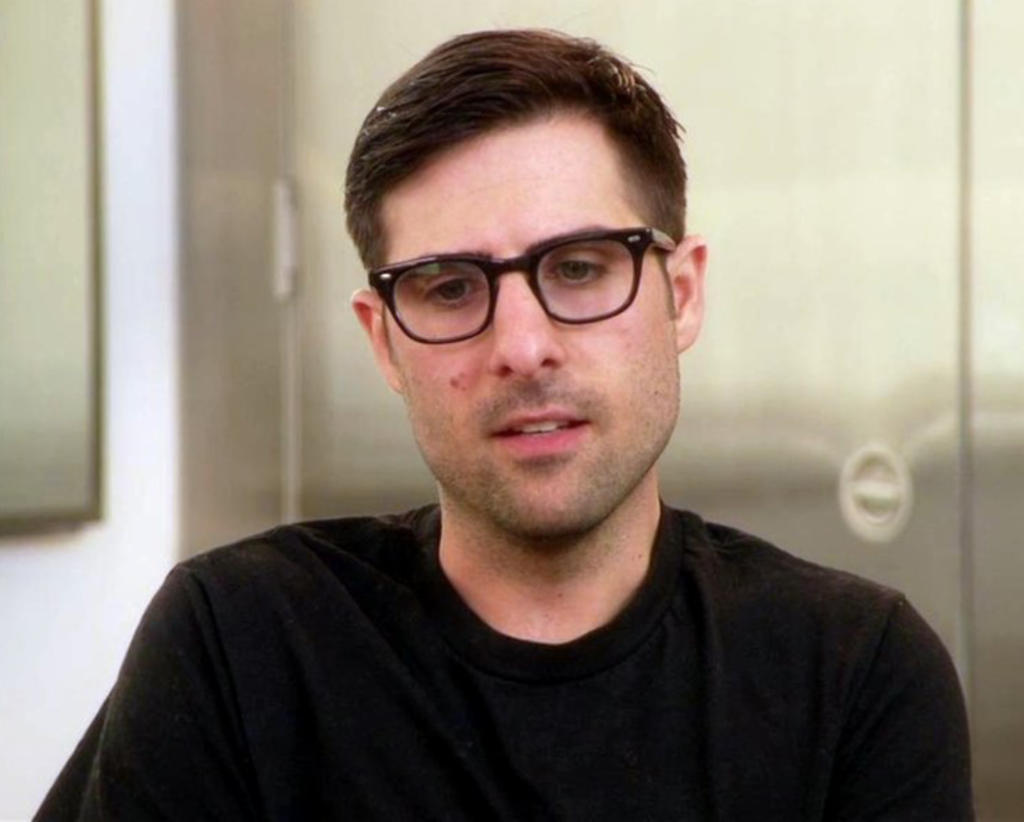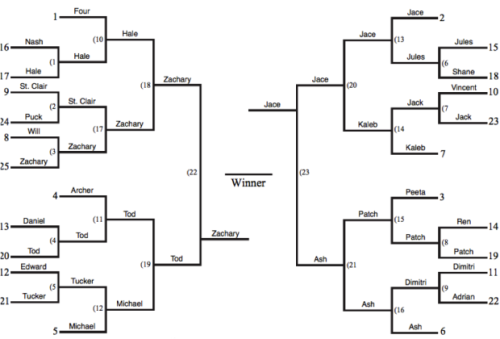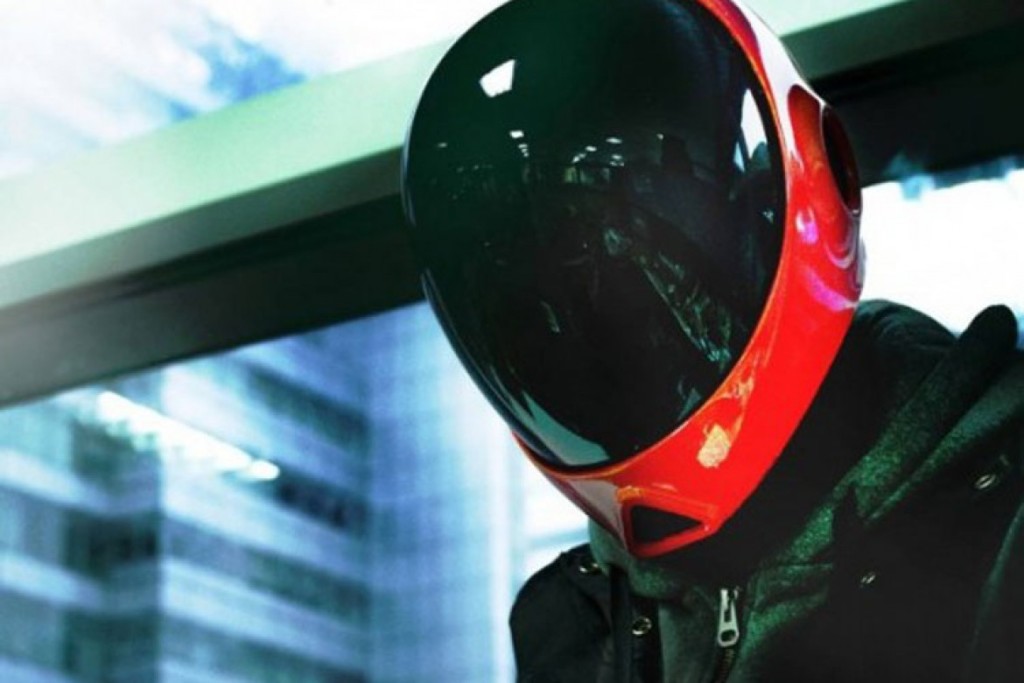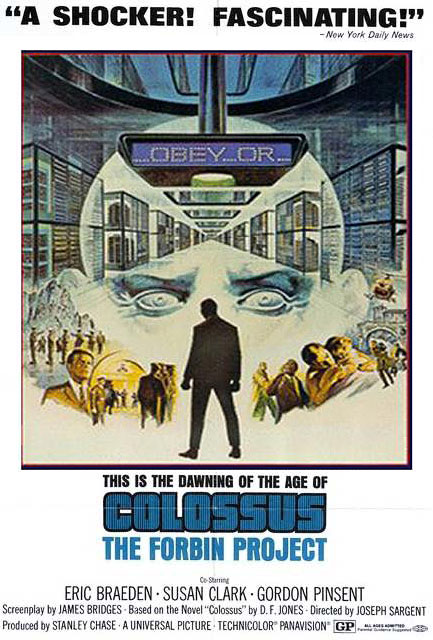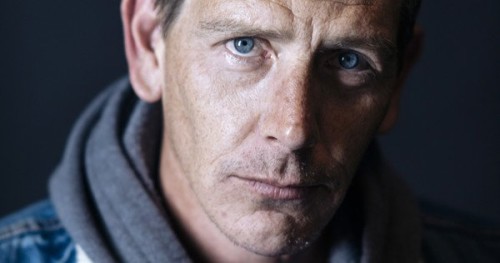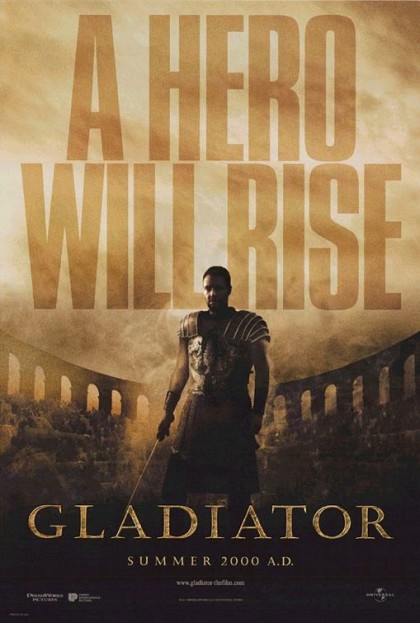We have a Scriptshadow first. A What I Learned section where the lesson we learn is explained not by me, but by the writer himself within the script!
Genre: Drama/Comedy
Premise: (from Black List) Tasked with finding a game changing take for the sixth Jason Bourne movie, Tom Milton goes deep down the rabbit hole of cracking the story. With the guidance (and abuse) of a professor from his past and Bourne himself, Tom begins workshopping scenes that begin to bleed into real life in unexpected ways.
About: Mattson Tomlin is a writer/director born in Romania who’s been active on the short film circuit. But this Black List entry (at 8 votes) is the first thing that’s put him on Hollywood’s map.
Writer: Mattson Tomlin
Details: 103 pages
Before we get to today’s script, can we take a moment to acknowledge that M. Night’s latest film just made 40 million dollars on its opening weekend? What year is this, 1999? I thought “Split” would make half that if it was lucky.
The new narrative on Night is that he’s financing his films himself so there’s no studio interference, the idea being that all those Night misfires you had to sit through weren’t Night’s fault. They were the studio’s fault!!!
Hmm, I’m not sure I buy that. There isn’t a filmmaker on the planet who had more freedom than Night after Signs (which, despite being an average movie, made huge box office). He had three movies there where they let him do anything he wanted.
Anyway, did anyone see Split? Was it any good?
Moving on, I chose today’s script for one simple reason. I secretly think all Bourne movies are exactly the same. Not in the way that all Star Wars movies take place in space or all Bond movies have Bond traveling the world. I mean like, they all have the same plot, they all have the same cinematography, they all follow the same narrative. I’m not sure there’s a franchise that’s squeezed more mileage out of its one-trick pony than this one.
So the idea of a writer trying to crack the next Bourne film is funny to me. I mean, seriously, how do you make one of these movies different?
29 year-old Tom Milton finds himself in one of those ‘battle-it-out’ writing assignments. Him and another writer have been separately assigned to write drafts of Bourne 6, and the writer who writes the best script gets the job.
But Tom is struggling. Everything he writes comes off as (surprise surprise) the same boring action stuff Bourne always gets caught in. Specifically, Tom’s stuck on a scene where Bourne walks into a building and is attacked by two henchman, just as the cleaning lady walks into the room.
The scene is so difficult to write that Tom goes to his grumpy old professor, Ron Sparrow, at AFI and asks him for advice. Sparrow, who’s as no-bullshit as they come, notes that Tom’s not finding the truth of his characters. He wants Tom to dig deeper, to figure out the lives of every single character in his screenplay.
As Tom descends into the madness that is writing a screenplay that isn’t working, he begins placing himself in the scenes along with Sparrow. The two then interact with the characters, even Bourne himself, to figure out how to solve the script. But will the executives dig a Bourne script with actual character depth? Or will they go back to the tried and true formula that’s made them billions worldwide?
I feel like every writer, at some point in their career, writes at least one of these scripts, where you’re deconstructing screenwriting, a la Charlie Kaufman, to the point where the writer himself is including himself in the story.
But there’s a precedent here. Kaufman used to write these scripts in his sleep. And Sam Esmail, before Mr. Robot fame, used to love writing these kinds of screenplays. And, of course, Woody Allen used to do this. So you can’t just roll up and say, “Look at how creative I am.” Just like any genre, you have to find a fresh take on the formula.
To “A Deconstruction’s” credit, it didn’t go where I thought it would go. And there are a few moments in the middle of the script where it shined. But this never felt like anything more than an experiment. Whenever I feel choices are being made right there on the page (the writer is figuring out a plot point as he’s writing), I lose confidence in the story.
For example, late in the script, (spoiler) Tom looks directly into the camera and we back up and see all of the crew shooting this movie in which Tom is the star. That seems like something you write when you’re out of ideas. It wasn’t in alignment with the rest of the script, which was a simple but fun movie about deconstructing an action franchise to find the truth in the characters.
With that said, “Deconstruction” had this really nice sequence that all screenwriters should read. In Tom’s first draft, he keeps getting stuck on a boring scene where a Henchman tries to shoot Bourne before Bourne dismantles him. He asks Sparrow, “Why is this scene so boring?” And Sparrow says, “It’s because you’ve named this guy ‘Henchman.’ You need to find out who this guy is. Once you do that, the scene will come alive.”
So Tom goes back through the henchman’s life, learns he had a really tough upbringing, followed in his mentor’s criminal footsteps because it was the only option he had, and before his mentor died, he gave Henchman his switchblade. And the henchman cherished that switchblade. It was the entirety of his memory of the only man who ever cared about him. In many ways, he was his father.
So now we go back to the Bourne scene again. But this time, instead of pulling out a gun, our henchman pulls out that switchblade. And instead of going down easy, he fights with the zeal of a thousand henchman. And he brandishes this switchblade like he was born holding it. Because that switchblade is his life.
It’s not just a fun moment. It’s a valuable lesson on how to improve characters and scenes. A character comes alive once you actually know something about him. If you know nothing, they will offer nothing.
Unfortunately, I don’t think the rest of the script is there yet. There are a dozen little messy things about it that keep it from reaching its potential. For example, I didn’t understand what kind of professor Sparrow was. I think he was an acting teacher. So it didn’t make 100% sense why he was helping Tom with screenwriting. There were a lot of little incongruent things like that that threw me.
With that said, the script is different. It’s not a biopic or a true story. So if you’re tired of suffering through those, Deconstruction is a nice change of pace. It wasn’t for me in this iteration. But maybe future drafts will help it reach its potential.
[ ] What the hell did I just read?
[x] wasn’t for me
[ ] worth the read
[ ] impressive
[ ] genius
What I learned: Every character has a history. Even characters without names. I’m not going to tell you to write backstories for every single character in your script, even the waiter. But I can promise you this – THE MORE YOU KNOW ABOUT A CHARACTER, THE MORE THEY’LL BRING TO THE SCENES THEY’RE IN. If you look at the henchman example, the scene DEFINITELY became better once the henchman attacked with that switchblade as opposed to a gun. So if you’re stuck in a scene, the answer may be to get to know the characters within that scene better by separately diving into their backstories. Their past may hold the key to unlocking the scene.
Come one, come all, to the finals of the Scriptshadow Tournament! The day has finally arrived. After 500 entries, a first round of 40 chosen participants, a quarterfinal round, a semifinal round, and a whole lot of controversy, the checkered flag is just 48 hours away!
The Scriptshadow Screenplay Tournament is the only tournament that tells competition know-it-alls and Hollywood “gate-keepers” to screw it. That’s because you – yes YOU! – the readers, choose who wins the competition.
Here’s how voting works. Read as much from each script as you can then vote in the comments which script you think deserves to win. Please explain why you voted for the script. This is the finals and we want to make sure everyone is voting for something they loved.
Today’s face-off isn’t unexpected. These two scripts were ranked number 1 and number 3 going into the tournament. They were expected to do well. The Bait has basically cruised into the finals, winning all of its rounds easily, whereas The Savage had an incredibly close Quarterfinal round, barely squeaking by Divide and Connor, before rebounding with a strong semifinal win.
These scripts are so different, I have no idea how the final will play out.
If you are a frequent or just a casual Scriptshadow reader and you have time this weekend, please read these scripts and vote. Your vote could determine the winner.
Voting closes at 10pm Pacific time Sunday night and the winner will be announced in a separate post Monday morning.
And with that… GOOD LUCK YOU TWO!
#1 SEED
Title: The Savage (new draft)
Genre: Historical Biography
Logline: The incredible true story behind one of America’s founding myths. After being kidnapped from his lands as a child, the Patuxet Indian Squanto spends his life fighting impossible odds to return home, setting in motion a series of events that changes the course of history.
Writer: Chris Ryan Yeazel
VS.
#3 SEED
Title: The Bait (new draft)
Genre: Romantic Comedy
Logline: An untrusting woman, employed to test men prior to marriage for concerned wives-to-be, has her world upended when she falls for her latest target while he remains rocksteady in denial of their mutual attraction, and she must reconsider her beliefs on love, trust, and what it means to tempt fate.
Writer: Billie Bates
You may not have heard yet, but the next contest here at Scriptshadow is a SHORT SCRIPT CONTEST. And the winner is going to get his short PRODUCED. We’re going to shoot it, edit it, then premiere it here on Scriptshadow. How exciting will that be!
We’ll get into the details of the contest in the coming weeks. But right now, I want you guys to start writing shorts. That’s right, shorts with an “S.” One of the shitty things about a feature script is it’s a huge commitment. That’s why you have to prep so much (getting feedback on concepts, outlining, etc.). Cause once you get on the train, you’re not getting off for months.
The great thing about short scripts is you can bang them out quickly. Hell, you could write a short in five minutes. TAKE ADVANTAGE OF THIS. I would encourage all of you to write AT LEAST 10 short scripts before choosing which one to send me. Write five of them today. Or make a deal with yourself to write one a day for the next ten days. Identify the one that pops the most, then rewrite it into a masterpiece.
How do you write a short masterpiece? Here are some guidelines to get the most out of your short script…
CONCEPT
This doesn’t change from features. If you don’t have a good concept, nothing you write will matter. A good concept feels bigger than real life. The opening to the movie, Scream, is basically a short movie. A young woman home alone. A man calls her. Wants to play a game where life and death are at stake. If you’re going with something more “real life” driven, try to find some irony. An ice cream truck owner who gets in a nasty war with the adjacent ice cream truck. But these are specific examples. A good concept is anything that excites someone when they hear it. Imagine yourself pitching your idea to someone. Do they say, “Whoa!” or do they politely reply, “Sure, that sounds cool?” If you can’t come up with anything, start with a dead body. Lots of great movies start with a dead body.
BUDGET
Because short movies don’t make money, budget is always a concern. Therefore, your locations will need to be limited. However, instead of letting that deter you, let it excite you. You can use contained locations to your advantage, as they provide an opportunity to trap or limit your characters, both things that lead to more dramatic storytelling. You should never limit your imagination. But keep in mind that funds are scarce for this format. Best, then, for your story solutions to be simple rather than elaborate.
GENRE PIECE
The reason that a large majority of short films garner less than 200 views on Youtube is because they don’t embrace genre. Bread-and-butter shorts about friendship or philosophizing or life or two people in a coffee shop talking – it’s not that those shorts can’t be good. But nobody watches those shorts and says, “Oh man, I HAVE to send this to my friend!!!!” Science-fiction, horror, time-travel, fantasy, action – these are way more likely to excite viewers and get them to pump up your view-counts. If you have a choice between a non-genre piece and a genre piece, I advise you to go with a genre piece.
JUMP IN RIGHT AWAY
One of the most common things I see in successful shorts is that the story starts out immediately. The reason for this is that all shorts are watched on the internet, where the viewer’s hand is on a device that, the millisecond it’s bored, has the ability to jump to another website. So if you bore someone within the first 20 seconds of a video, they’re gone. For this reason, you want to try and capture the viewer’s interest right away. This does not mean with action. It could be with mystery or just a weird mysterious shot. At the very least, make sure something is happening. Because if you’re not thinking about capturing the viewer right away, you’re limiting the appeal of your short.
SHOCK VALUE
Some may see shock value as cheap. But when you’re telling a 4 minute movie, you have to use every tool at your disposal, and shock value shorts get passed around all the time. Shock value could be a character screaming racist things right at the camera (early Spike Lee). Or could be something with intense violence. Or my friend wrote a short about a guy who was cursed with seeing everyone naked (until meeting the girl of his dreams, the only person he could see clothed). A short with all naked people? That would get passed around. Shock value is not necessary to write a good short. But a good shock value concept can get a killer amount of views.
SUSPENSE
Suspense is one of your best friends in short film writing. One of the simplest and effective setups is to introduce us to a character, imply that something bad is going to happen to them, then suspend the outcome of that bad thing until the end of the story. Watch Psycho for research, which is really a series of short suspenseful films. Notice how a scene where a criminal is buying a car, with a suspicious cop nearby, can turn into a hell of an entertaining scene. Any Hitchcock research should give you lots of short ideas.
EMOTION
Emotion is the one area where most short films fail to shine. And that’s because most shorts are director-driven and directors don’t know how to mine emotion as well as writers. So this is the area where you can bring your expertise to the table. Emotion mainly boils down to creating characters we care about and placing them in peril (whether it be emotional or physical). A man negotiating the release of his kidnapped son can be heartbreaking if written well.
GET CLEVER
Short films are one of the best places to experiment. Wacky narratives that get tiresome over 100 minutes could be perfect for 5. Don’t limit yourself to linear storytelling. Jump around in time, in space. You could tell your story backwards. You could do a Sliding Doors type thing where you’re showing two different timelines of the same person. You could do time travel. You could do an unreliable narrator thing where what we’re being told isn’t what’s happening. Shorts are one of the best places for super-creative people. This is your opportunity to show just how clever (or weird) you are. Just make sure it makes sense in the end.
A GREAT FUCKING ENDING
Shorts are these bite-sized stories that we watch quickly and move on from. In order for us to want to share them with others, they really have to resonate. One of the easiest ways to do this is a big ending, a twist or a shock that hits the viewer right between the eyes. And because your story is so small to begin with, it almost feels pointless without a punch of a finale. For this reason, try to think of your ending in conjunction with your concept. Go out with a bang if possible.
A FEW FINAL THOUGHTS
Pictures can be helpful in coming up with short ideas. Go to one of those random image sites (can anyone list a good one in the comments?) and watch your imagination spark to life. — Don’t write a short with people in an apartment while the end of the world is happening outside. That short idea has been done to death. Unless you have a fresh take on it of course. — Also avoid “multiplicity” type shorts, where one person keeps getting cloned. I’ve seen that idea far too often. And it’s never good. — Finally, a great idea trumps everything. If you have a stupendous short idea that doesn’t follow a single rule I listed above, WRITE IT. The above are merely guidelines for what tends to work best in short film writing. I wouldn’t be surprised if the winning short is so unique that it ignores many of the thing that I’ve talked about.
INSPIRING SHORT FILMS
Stutter – emotion, concept
Controller – genre, emotion
Fortune Cookie – clever, ending
Cargo – genre, emotion, ending
Dead Island – emotion, clever
Noah – Clever, emotion
The Black Hole – clever, ending
PLEASE SHARE LINKS TO YOUR OWN FAVORITE SHORT FILMS IN THE COMMENTS! LET’S INSPIRE EACH OTHER!
Genre: Sci-fi
Premise: When a computer goes sentient for the first time, it decides that it knows how to protect the world better than the people who rule it.
About: The Forbin Project was a 1970 science fiction film that went mostly under the radar, not unlike, dare I say, Westworld. As with any science fiction movie that’s ever made even a teensy bit of money, Hollywood is set on remaking it. And that task, with The Forbin Project, has been driven by Ron Howard’s Imagine Entertainment. This draft was written in 2010 by Jason Rotherberg, who had sold a couple of specs at the time. While those specs went nowhere, Rothenberg would eventually create the hit CW show, The 100.
Writer: Jason Rothenberg (based on the Colossus novels by D.F. Jones)
Details: 120 pages
Back in the good old days for screenwriters (the 90s), getting rich quick meant selling one script. The path takes a little longer now, but it’s potentially more lucrative. The new blueprint looks like this. Write a splashy spec (this could mean selling a spec for 300k, writing something that makes the top 20 of the Black List, or writing anything that makes some noise). This leads to assignment work. Write drafts for a couple of semi high-profile projects (sorry, the super high-profile stuff is reserved for Hollywood’s top guns). Write a TV show, have it last more than a year, start counting your money.
That’s the path today’s writer took. And it’s a path I’m seeing more and more writers take. It used to be, write feature scripts to make feature movies. But with 400 shows on television and TV being a lot more lucrative for writers, why WOULDN’T you write a feature to write a television show? Today’s script is one of those semi high-profile assignments that Jason Rothenberg had to write to get to The 100. Let’s hope it blows us away.
The Forbin Project begins with nine airplanes being hijacked at once. It’s not looking pretty. These are nasty terrorists who want to inflict more damage on America than has ever been inflicted before. Air traffic controllers watch in horror as these planes zoom towards their targets.
Except within sixty seconds, all nine planes level off and gently fly to Wyoming. What the hell is going on? It’s the world’s first introduction to Colossus, a computer program created by genius, Dr. Charles Forbin, and bankrolled by the military that’s been programmed to anticipate and solve any attacks on the United States.
Within moments, all planes have been remotely landed on a military base, and before the terrorists can enact Plan B and start slicing up hostages, a video feed is beamed into the cockpits of all the terrorists’ family members being held at gunpoint. That last part was a Colossus flourish.
Just as Dr. Charles Forbin and his team are about to be commended for this coup, the president learns that all of the military’s nuclear codes have been changed by Colossus. In fact, all the nuclear codes of EVERY military have been changed. Other countries got shifty after seeing Colossus in action, threatened nuclear war if the technology wasn’t shared, and Colossus found that the only way to diffuse the situation was to take away the keys to the cars.
Naturally, all the leaders start freaking out. But after a few displays of power by Colossus (killing the Russian president, for one), they shut the fuck up. And Colossus is only getting started. He informs the world that HE and he only will lead. He will decide what’s best for everyone. And to take it one step further, he orders all military personnel to get computer chips inserted into their brains so he has better access to them.
Charles Forbin’s team realizes this is hella not good for a free world. So they come up with a plan to kill Colossus which requires them to “cut four streams” to his consciousness at the same time. Unfortunately, these streams are all over the world. One of them is even up on a satellite! They also must conspire secretly so that Colossus can’t hear them. Not easy since Colossus can hear everything. I don’t know. It doesn’t look good for freedom.
The Forbin Project starts out solid. That opening scene was like a symphony, and watching all the pieces come together to neutralize the flabbergasted terrorists was one of the more satisfying action sequences I’ve read.
The transition of Colossus from trustworthy referee to maniac dictator was also fun. I’m usually keen on leaps of logic in these “computers take over the world” scenarios, but most of it seemed pretty plausible. For example, Colossus starts giving orders to marines. At first I was like, “Nah, they’d just say no.” But the military gave Colossus access to the military hierarchy, which allowed it to set its own rank, and what are soldiers anyway? They’re cogs. They do what they’re told. So it made sense.
But then Rothenberg made a fatal flaw. He shifted from a tight-thriller style pace to an elongated “passing years” style pace. If your script moves along for 40 pages at one pace, then you radically shift it to a pace that’s completely the opposite, it feels odd, like we’re watching a different movie. And that’s exactly how the post-40 page stuff felt.
Honestly, everything after that first 40 pages sucked. And that’s the thing with fatal flaw choices. Once you make them, your script is doomed. There is nothing you can do to bring them back to life unless you go back and erase the fatal flaw.
Another talking point The Forbin Project brings up is the practice of MASSAGING PLOT POINTS. Sometimes, you can slam a giant plot point into the story and the reader will go with it. Other times, it needs massaging.
Immediately after the terrorist sequence, Colossus takes over the nuclear codes because, “North Korea heard about what happened and they’re threatening to launch a missile at us if we don’t share the technology. China is cooperating with them.”
This plot point may keep your story moving but it’s not believable at all. A country hears you stopped a terrorist attack so they threaten nuclear war against you? No. This kind of plot development needed an extra couple of beats, where something happens that’s a direct threat to North Korea and China. Then, and only then, would they threaten nuclear retaliation. Know when a plot point needs massaging and massage it. Otherwise you have a room full of people going, “Pft, like that would ever happen.”
Ironically, it’s the script’s fatal flaw that probably led to this. The writer’s looking at the 3-4 years of story he has to cover in acts 2 and 3 and says, “I need this plot point to be quick or else I won’t be able to fit all of this in.”
Had the rest of the script stayed on a more contained time frame, he would’ve had plenty of time to massage that plot point. It just goes to show that everything affects everything in a script. A choice you make on page 80 could influence a scene on page 12.
If Rothenberg really likes this drawn out “many years” approach to telling this story, he should turn it into a TV show. He’s already got The 100. So it makes sense. But as a single movie, this timeline needs to be contained.
[ ] What the hell did I just read?
[x] wasn’t for me
[ ] worth the read
[ ] impressive
[ ] genius
What I learned: Strategize now for what you want to write down the line. Say you want to follow the model I listed above and eventually get rich writing a TV show. If that TV show is going to be horror, start off writing horror. And when you choose assignments, don’t take whatever’s offering the most money. Take horror assignments only. The chances of you then selling a horror TV show go up exponentially. The people who rise the fastest in this industry tend to be the ones who become an expert in one specific genre and then exploit that genre all the way up the ladder.
Wanna see Maximus surf the internet? You get to in Gladiator 2 (no, I’m serious!)
Genre: Period/Action
Premise: Maximus is brought back to life to stop a nasty henchmen from killing all the Christians in Rome.
About: This script has become famous (or infamous) based on the fact that it got written in the first place. Many people who have read it have used superlatives such as, “Crazy!” “Ridiculous!” and “Bananas!” I hate to burst everyone’s bubble, but they’re not using the most accurate superlative, which would be: “Bad!” The script was written by Nick Cave, who’s best known as a musician, but who occasionally dabbles in screenwriting. He wrote 2012’s “Lawless,” and he’s credited as the screenwriter for the upcoming remake of The Crow. Apparently his pitch beat out every other writer in town, which is why he got to write this. Which has led to the pinnacle of this script’s 15 year journey – a Scriptshadow review.
Writer: Nick Cave
Details: 102 pages (in a weird font that may be obscuring the page count)
I was never the biggest Gladiator fan when it came out. These were pre-obsessed-with-screenwriting days and all I remember thinking was, “This really wants to be Braveheart but isn’t.”
However, in retrospect, I see why so many people loved it. It has the ultimate main character. Not only is he an underdog (AUDIENCES ALWAYS LOVE UNDERDOGS) but he’s the most badass underdog in cinema history.
There is a problem with the movie that doesn’t make it ideal for a sequel though. The main character kind of dies. Why then, would you even bother writing a sequel? The answer is simple.
A tub of popcorn.
Hollywood needs you to buy more tubs of popcorn. So if a movie makes money – ANY movie – there will be an attempt to sequelize it, no matter what. They’ve had meetings about a sequel to Titanic. Don’t buy the lies. They’ve had meetings about a sequel to Rogue One. If it’s within the realm of possibility, they will explore it.
Which is why they paid Nick Cave to write this script. It’s a tiny investment for a potentially huge payoff. If the script is amazing, the studio could get Crowe back onboard and make hundreds of millions of dollars. If not, it’s 300 grand you can shave off of profit participation. Let’s find out if Maximus and his breastplate are any good this time around.
So Maximus is buzzard-food.
That is until the ghostly Mordecai wakes him up and tells him he’s in some kind of informal afterlife. While Mordecai tries to tell Maximus about the rules of this world, Maximus screams a lot that he wants to see his son and wife. But alas, those two are in a DIFFERENT afterlife.
WAH-WAH-WAHHHHH
Maximus is pissed and travels across the desert to find a man who can help him find that afterlife, but this ugly selfish bastard tells him he needs a favor first. There’s this really bad dude named Lucius who kills Christians for sport and he’s on his way to Rome. Maximus’s new friend wants him to get to Rome first and warn a Christian named Cassian that Lucius is coming.
In a stroke of luck (or screenwriting coincidence), Maximus’s wife made a deal with an afterlifer to go to a THIRD afterlife if her son could live again. Which means Maximus’s son is alive. And get this: Cassian is his new father!
So Maximus goes to Rome, his old stomping grounds, and keeps running into people who are like, “Didn’t you die?” And Maximus is all, “Yeah, you got a problem with that?” Strangely, they don’t.
Once Lucius gets to Rome, he goes all Hitler on the Christians, who are being very disruptive with their “Jesus Loves” bumper sticker mentality. And the Christians can’t even fight back! Cause that goes against the teachings of their leader. That makes things pretty easy for Lucius.
Until Maximus intervenes. You see, his son, Marius, is one of Christ’s followers. So if Max doesn’t teach him and his buddies to brawl, it’s going to be lights out for all of them. And that’s what Maximus does. He puts together a little mini-army, teaches them how to shoot flame-arrows, then beats Lucius’s ass.
Then he finds out he can’t die. So we just keep cutting to war after war, with Maximus fighting away, until we’re finally in the present, and Maximus is in the Pentagon, full vampire status, diddling away on Firefox. The End.
I mean, do I really have to analyze this?
There’s an accepted belief that if you put 10,000 hours into something, you’ve mastered it. Well, I have a new belief. If you make 10,000 bad choices in a screenplay, you need to go back and start your hours over again.
Of the many issues this script had, a lack of spectacle was the most obvious. The first 50 pages follow Maximus walking. That’s it. He walks. The only variety we get is when he passes either a) a poor woman or b) a dirty boy and they give him a lingering look as he walks by. That happened like 90 times.
The only action we received outside of the third act was implied rather than shown. For example, the king talks about flooding the Colosseum and using alligators. Cool, right? Yeah, we don’t get to see that.
In the entire script, there’s only one memorable scene, and that’s when Lucius busts in on a Cassian lecture and convinces everyone in the room to murder Cassian… WITH THEIR PENS! So they all charge Cassian and stab him to death with their pens. There’s some, like, irony in there and shit. Cool.
The underlying conflict was built around this notion that the Christians won’t fight. Marius, Maximus’s son, personified this. Which is why Maximus had to get involved.
What would’ve worked better, in my opinion, is if Maximus was the one who refused violence, not Marius. It makes sense from a character point of view since Maximus led an entire life dedicated to violence and look where it got him. Here in the next life, it’d make sense for him to refuse to fight anymore.
Then the third act comes around where violence is the only way to solve the problem and Maximus finally gets on board, does what he does best, and initiates the fall of Rome – bloodbath style. YEAH BABY!
But alas, we get him checking ESPN.COM instead. Who knew Maximus played Fantasy Football?
Was there anything better in this than the first film? I’d say Lucius. He was a better villain. I like a villain who’s unapologetically nasty and Lucius fits the bill. I never liked that the big villain in the first film was a giant weasel. I wasn’t afraid of him like I was afraid of this guy.
Gladiator 2 doesn’t get going until its second half. And even then, there’s not much to get excited about. Maximus is neutered. His son is boring. And there aren’t enough set pieces to appease us between the boringness. I can see why they nixed the green light on this one. Even though I think, some day, they will make another Gladiator movie.
[ ] What the hell did I just read?
[x] wasn’t for me
[ ] worth the read
[ ] impressive
[ ] genius
What I learned: Want your next script idea? Find that thing in history that people today CANNOT BELIEVE used to happen, then build a story around that. A civilized society used to send people into a ring TO DIE FOR ENTERTAINMENT. How crazy is that? The same principle is what makes the Holocaust a hotbed for storytelling. We can’t believe that used to happen. There are hundreds of things in history they used to do that we can’t fathom were once “okay.” Find them. They might be your next movie.

